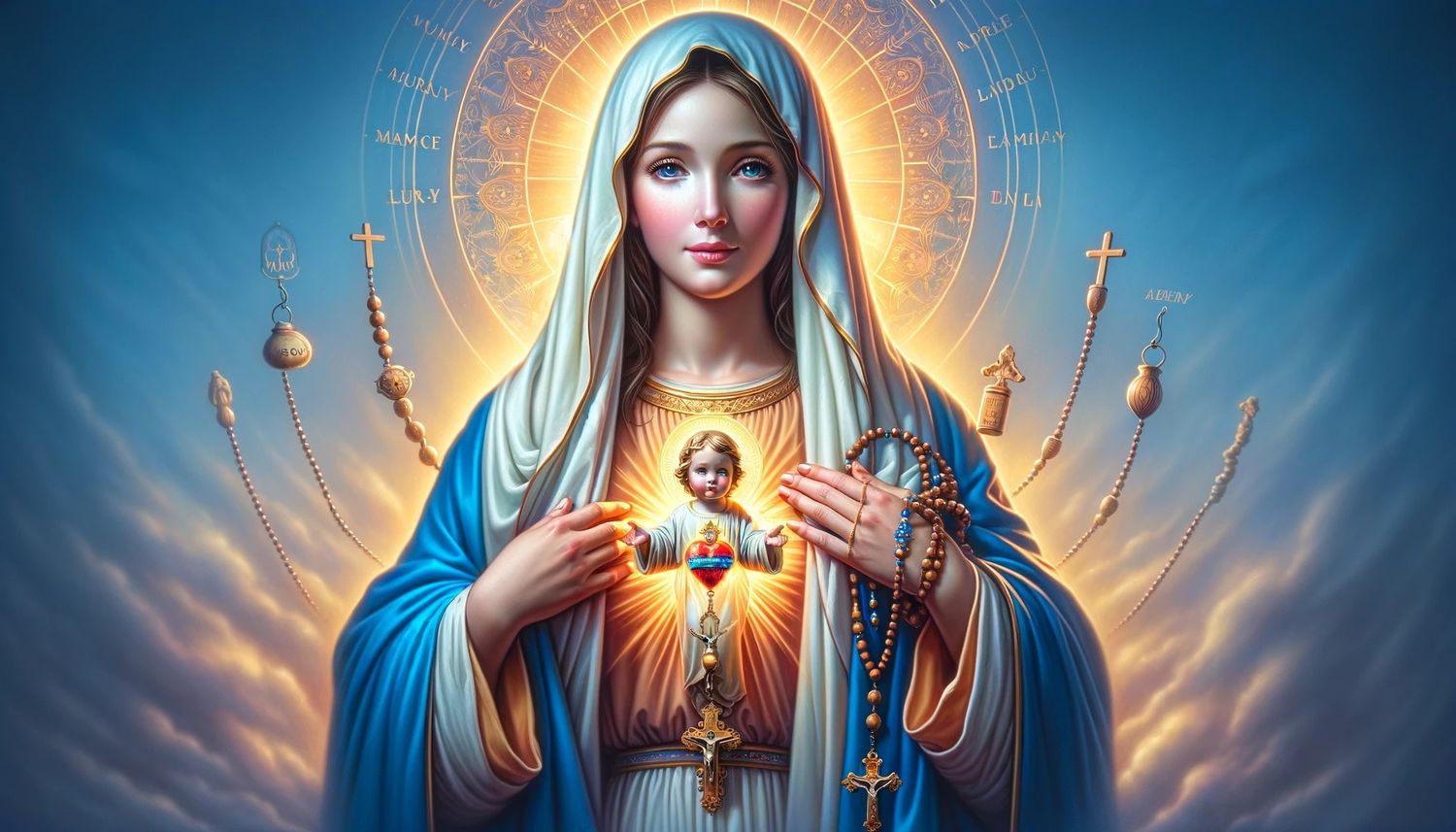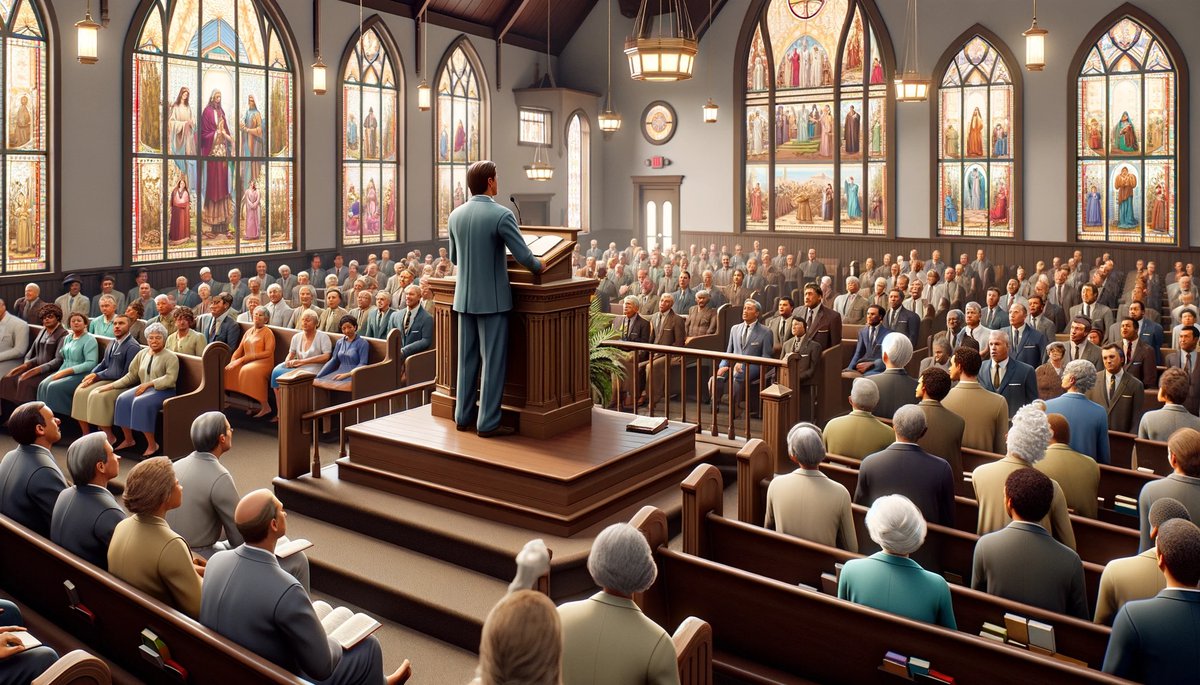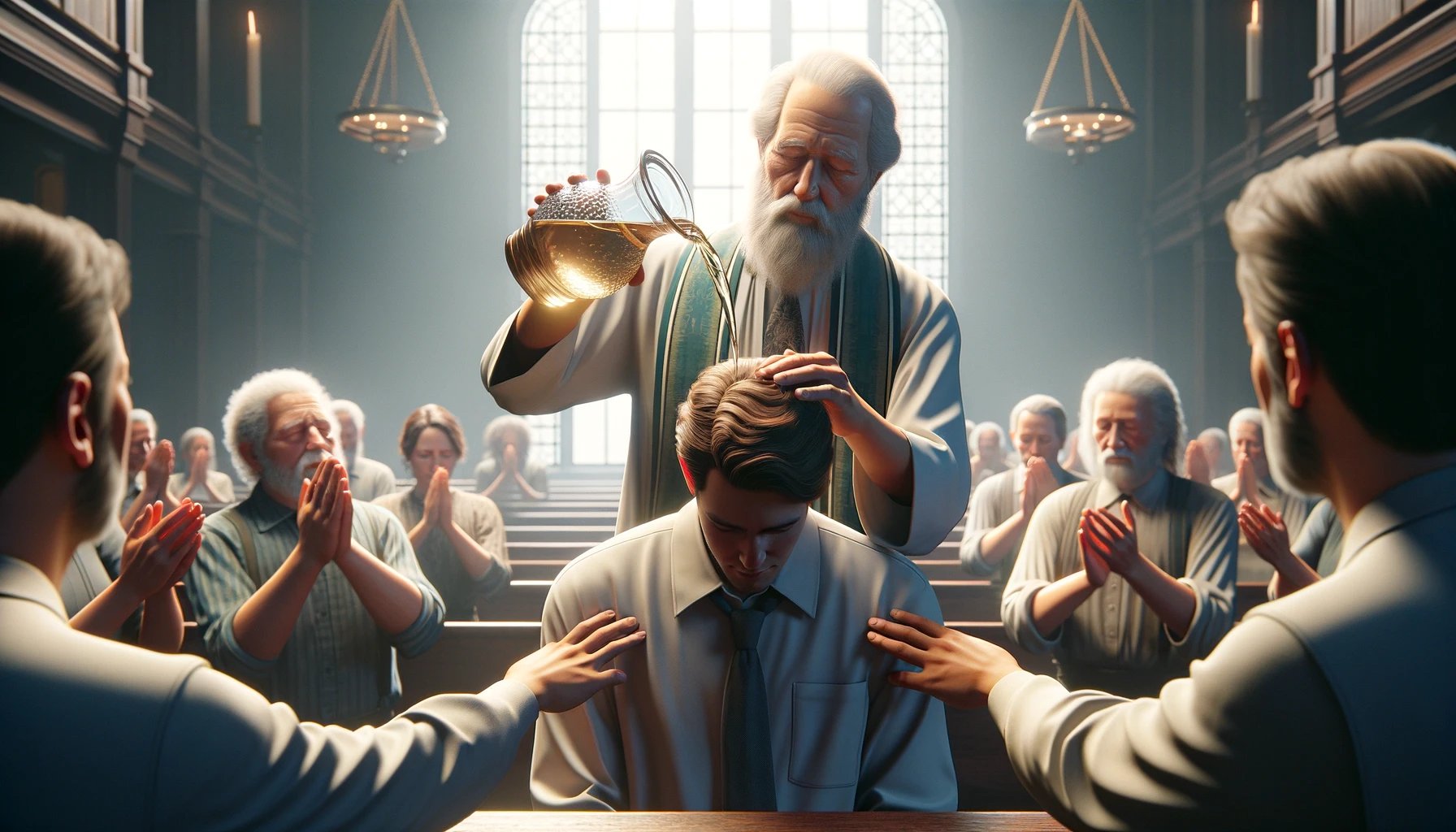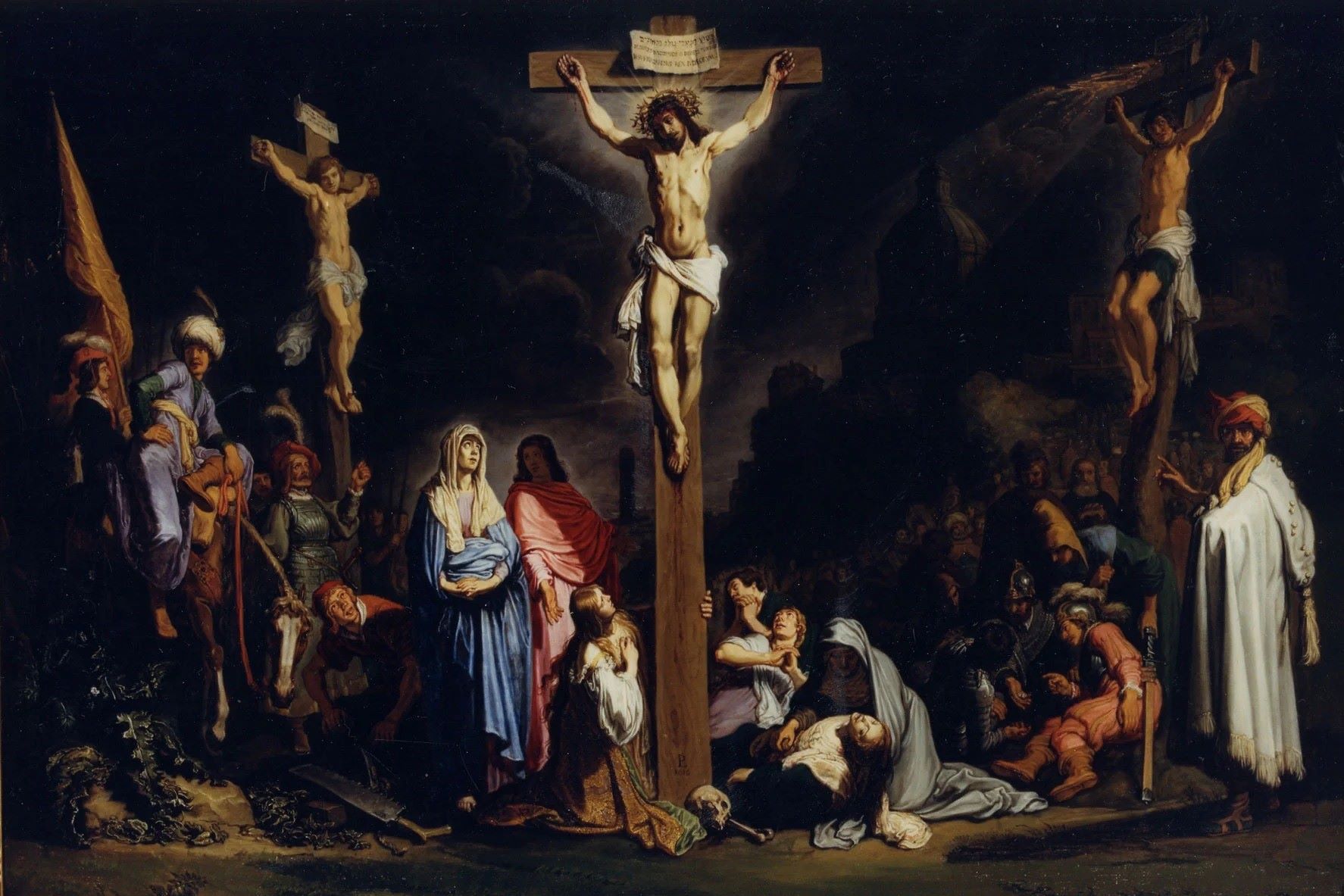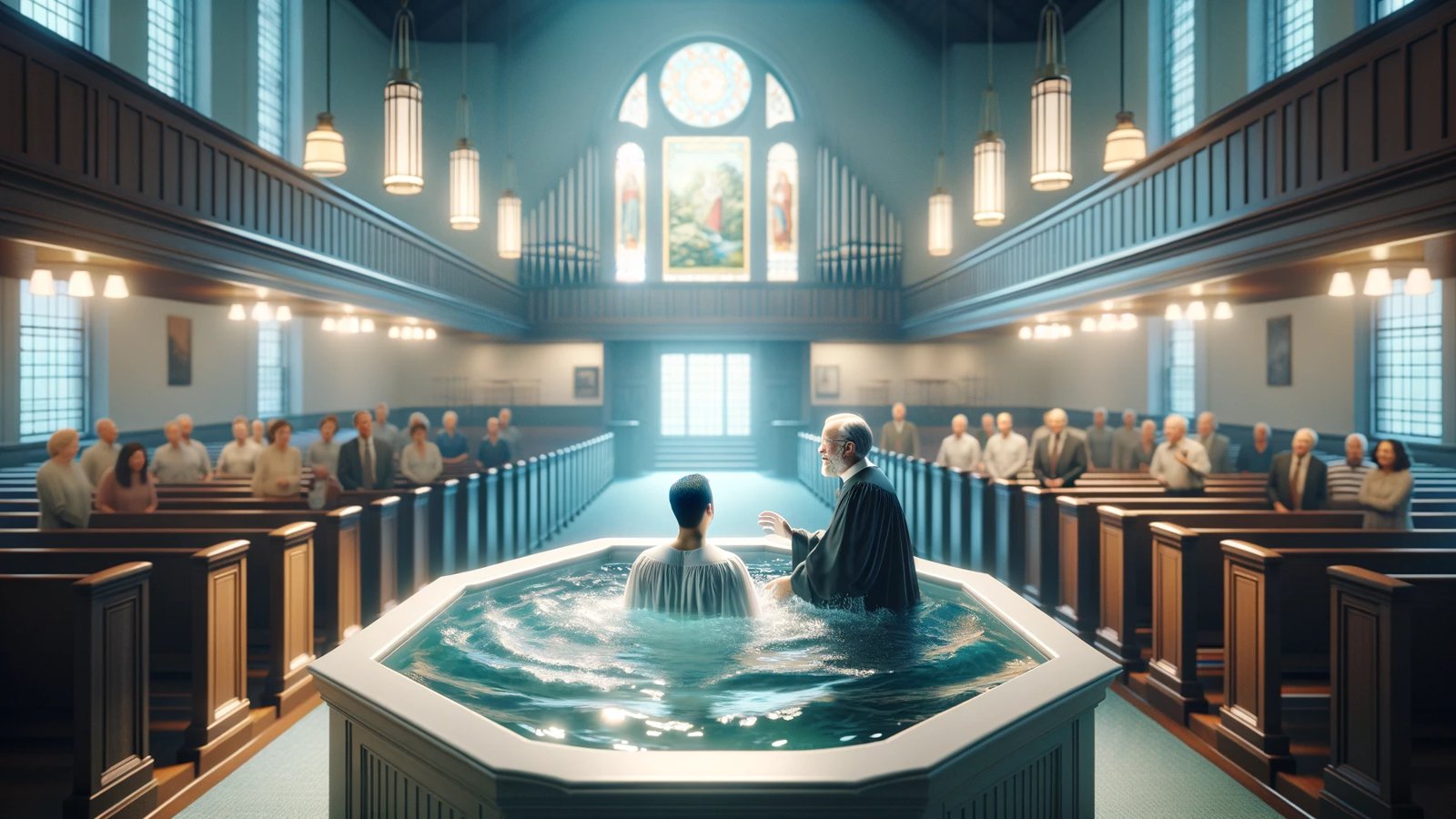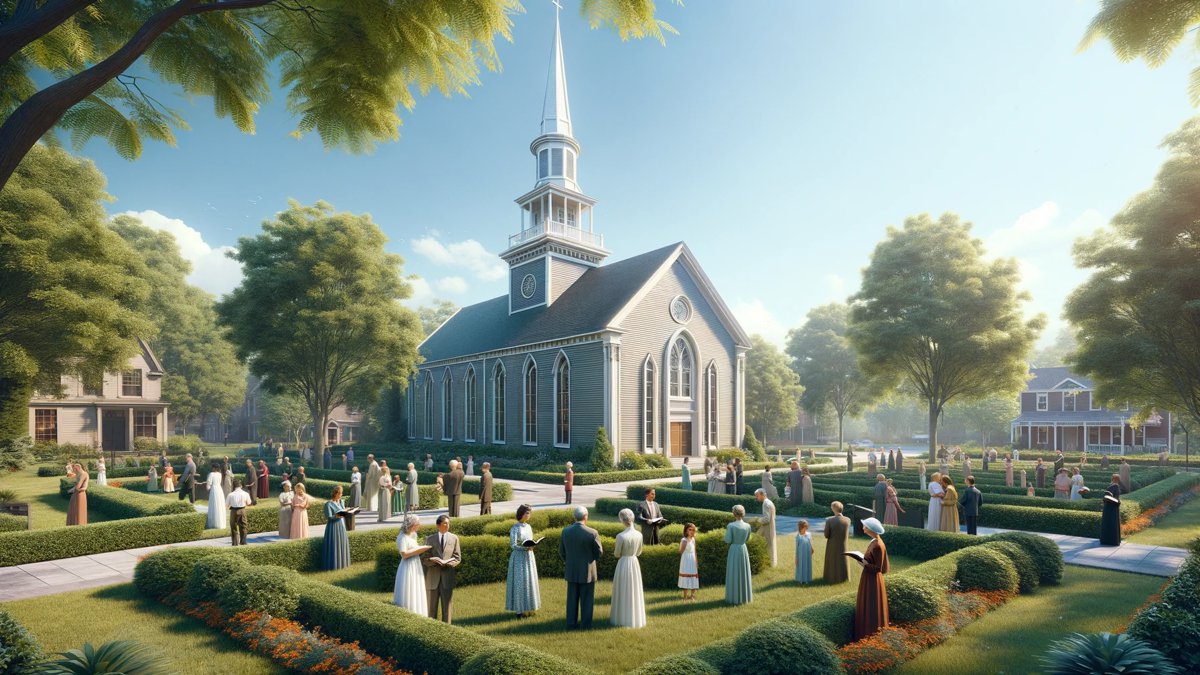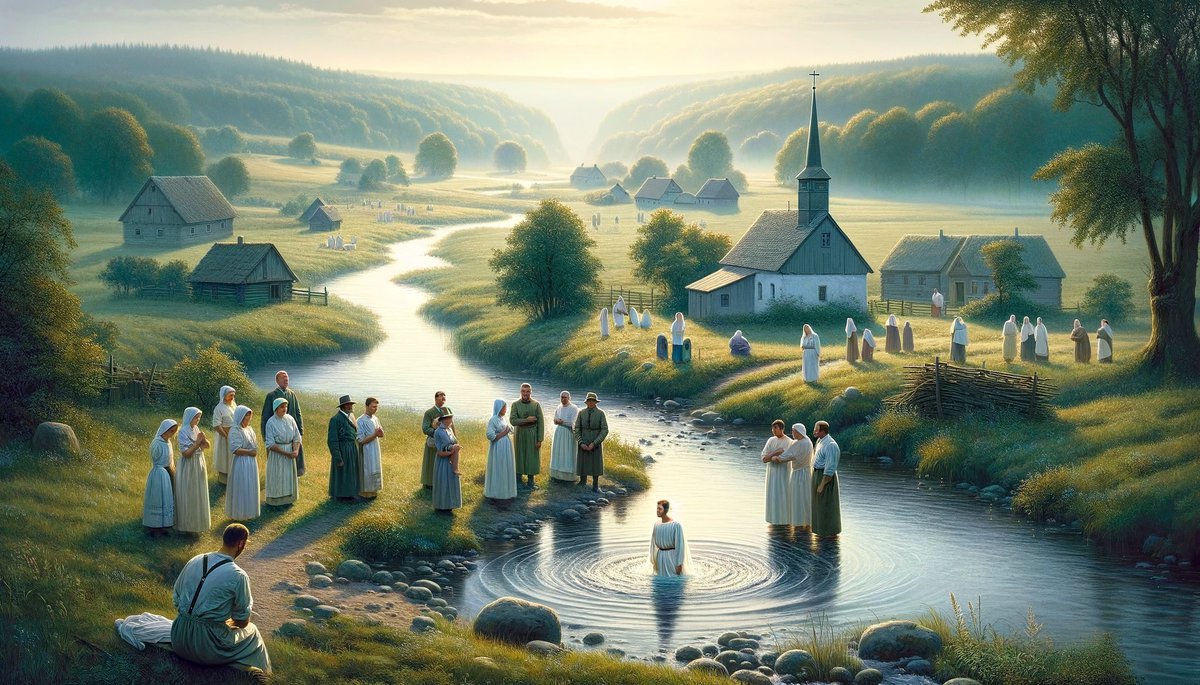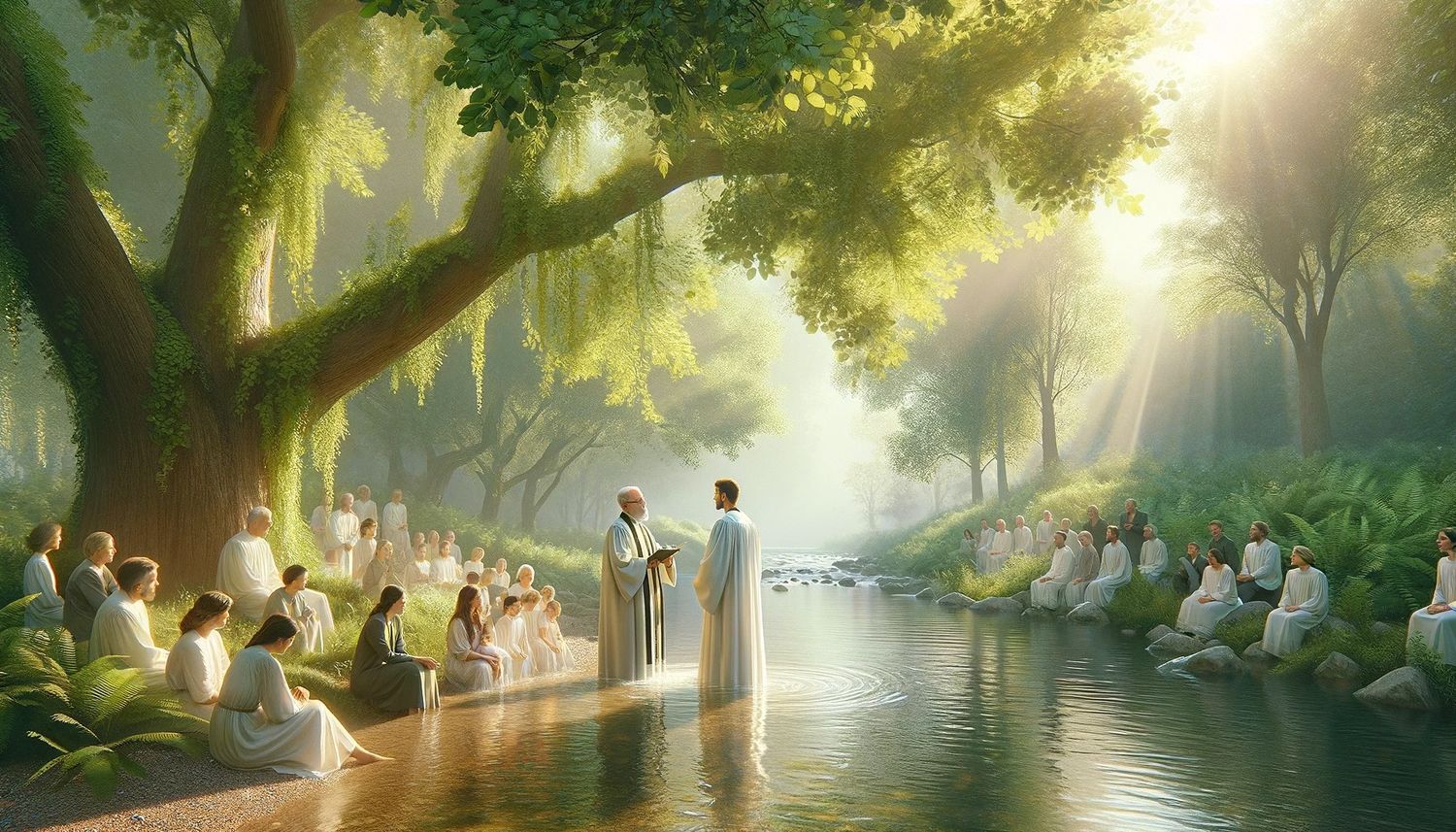Home>Theology and Spirituality>What Does Free Will Baptist Believe


Theology and Spirituality
What Does Free Will Baptist Believe
Published: February 21, 2024
Jason DeRose, Managing Editor at Christian.net, uses his expertise in religion and journalism to deepen understanding of faith's societal impacts. His editorial leadership, coupled with a strong academic background, enriches the platform’s diverse content, earning him recognition in both journalism and religious circles.
Discover the core beliefs of Free Will Baptist theology and spirituality. Explore their perspectives on faith, salvation, and Christian living.
(Many of the links in this article redirect to a specific reviewed product. Your purchase of these products through affiliate links helps to generate commission for Christian.net, at no extra cost. Learn more)
Table of Contents
Introduction
Free Will Baptist is a denomination within the broader spectrum of Christianity, characterized by its emphasis on the concept of free will. This theological perspective holds that individuals have the capacity to make choices that impact their spiritual destiny, particularly in relation to salvation. The Free Will Baptist tradition is rooted in a rich history and has distinct beliefs and practices that shape its identity within the Christian faith.
The denomination's commitment to the principle of free will is a defining feature that sets it apart from other Christian traditions. This foundational belief underscores the autonomy of human agency in matters of faith and salvation, reflecting a deep-seated conviction in the individual's ability to respond to God's grace. As such, Free Will Baptist theology places a strong emphasis on personal responsibility and the voluntary acceptance of God's offer of salvation.
Understanding the history, core beliefs, and practices of Free Will Baptist provides valuable insight into the distinctive characteristics that shape this faith tradition. From its origins to its contemporary expressions, the denomination's commitment to free will and its implications for salvation, baptism, church governance, and worship practices are integral to its identity and theological framework.
Exploring the nuances of Free Will Baptist theology offers a deeper understanding of the denomination's approach to spirituality and the Christian life. This exploration will shed light on the theological underpinnings that inform the beliefs and practices of Free Will Baptist congregations, providing a comprehensive perspective on the denomination's place within the broader tapestry of Christian faith traditions.
Read more: What Does Southern Baptist Believe
History of Free Will Baptist
The history of Free Will Baptist traces back to the early 18th century, with its roots embedded in the broader evangelical movement that swept across England and America during this period. The denomination emerged as a distinct entity within the Protestant tradition, shaped by a confluence of theological, social, and cultural factors that influenced its development.
The origins of Free Will Baptist can be linked to the teachings of Jacobus Arminius, a Dutch theologian whose views on free will and predestination diverged from the prevailing Calvinist doctrines of his time. Arminius' emphasis on human agency and the possibility of resisting divine grace resonated with many individuals, laying the groundwork for the theological framework that would later define Free Will Baptist beliefs.
In the American context, the emergence of Free Will Baptist can be attributed to the efforts of individuals such as Paul Palmer and Benjamin Randall, who played pivotal roles in organizing and formalizing the denomination. Randall, in particular, is regarded as a key figure in the establishment of Free Will Baptist congregations in New England, where the movement gained traction and began to take shape as a distinct religious tradition.
The denomination's commitment to the principle of free will and its implications for salvation and Christian living became central tenets that distinguished Free Will Baptist from other Protestant denominations. This emphasis on individual agency and the voluntary acceptance of God's grace resonated with many seeking a more participatory and experiential form of Christianity, contributing to the denomination's growth and influence.
Throughout its history, Free Will Baptist has experienced periods of expansion, division, and consolidation, reflecting the dynamic nature of religious movements in response to evolving social and cultural dynamics. The denomination's journey has been marked by a commitment to evangelism, missions, and social engagement, reflecting its enduring relevance and impact within the broader landscape of American Christianity.
The historical trajectory of Free Will Baptist underscores its resilience and adaptability in navigating the complexities of religious life in America. From its humble beginnings to its contemporary expressions, the denomination's history reflects a legacy of faith, conviction, and a steadfast commitment to the principles that have defined its identity within the Christian tradition.
Core Beliefs of Free Will Baptist
At the heart of Free Will Baptist theology are several core beliefs that shape the denomination's identity and theological framework. These foundational principles serve as guiding tenets that inform the denomination's understanding of God, salvation, human nature, and the Christian life. Understanding these core beliefs provides valuable insight into the distinctive theological perspective that defines Free Will Baptist identity.
1. Free Will
Central to Free Will Baptist theology is the affirmation of human free will. The denomination holds that individuals possess the capacity to make meaningful choices, particularly in matters pertaining to faith and salvation. This emphasis on free will underscores the belief that God has endowed humanity with the ability to respond to His grace and participate actively in the unfolding of their spiritual destinies.
2. Salvation
Free Will Baptist affirms the doctrine of salvation by grace through faith. The denomination emphasizes the universal offer of God's grace to all individuals and the need for a personal response to this offer. Salvation is viewed as a transformative experience that occurs through faith in Jesus Christ, and it is accessible to all who willingly accept God's invitation to redemption.
Read more: What Does First Baptist Believe
3. Atonement
In line with historic Christian orthodoxy, Free Will Baptist holds to the belief in the atoning work of Christ on the cross. The denomination affirms that Jesus' sacrificial death provides the means for reconciliation between God and humanity, offering forgiveness of sins and the promise of eternal life to those who embrace the message of the Gospel.
4. The Bible
Free Will Baptist regards the Bible as the authoritative and inspired Word of God. The denomination upholds the Scriptures as the ultimate source of divine revelation, providing guidance for faith and practice. This high view of Scripture underscores the denomination's commitment to biblical authority and its role in shaping theological convictions and ethical principles.
5. The Church
Free Will Baptist recognizes the importance of the local church as a community of believers gathered for worship, fellowship, and mission. The denomination values the autonomy of individual congregations while also emphasizing the interconnectedness of the broader body of Christ. This understanding of the church reflects a commitment to both local expression and collaborative engagement within the larger Christian community.
6. Holiness
Emphasizing the pursuit of holiness and righteous living, Free Will Baptist places a strong emphasis on the transformative work of the Holy Spirit in the lives of believers. The denomination encourages a lifestyle characterized by moral integrity, spiritual growth, and a commitment to living in accordance with the teachings of Christ.
These core beliefs serve as foundational pillars that define the theological landscape of Free Will Baptist. They reflect the denomination's commitment to a holistic understanding of Christian faith, emphasizing the interplay between God's grace and human response, the authority of Scripture, the significance of the church, and the pursuit of holiness in the Christian journey. Understanding these core beliefs provides a comprehensive perspective on the theological distinctives that shape Free Will Baptist identity and practice.
Read more: What Does Baptist Church Believe In
Salvation and Free Will
Salvation and the concept of free will are intricately intertwined within the theological framework of Free Will Baptist beliefs. At the core of this relationship is the affirmation of human agency in responding to God's offer of redemption. Free Will Baptist theology emphasizes the individual's capacity to make choices that have eternal significance, particularly in the context of accepting or rejecting God's grace.
Central to Free Will Baptist doctrine is the understanding that salvation is accessible to all individuals, and it is contingent upon a voluntary response to the Gospel message. This perspective aligns with the denomination's commitment to the principle of free will, affirming the belief that God's grace extends to every person, inviting them to embrace the gift of salvation through faith in Jesus Christ.
The theological underpinning of salvation and free will within the Free Will Baptist tradition underscores the profound implications of human choice in matters of eternal significance. This perspective stands in contrast to deterministic views of predestination, emphasizing the active participation of individuals in the process of responding to God's redemptive offer.
Furthermore, Free Will Baptist theology underscores the transformative nature of salvation, viewing it as a personal and experiential encounter with God's grace. This emphasis on the individual's voluntary acceptance of salvation reflects the denomination's commitment to the autonomy of human agency in matters of faith, highlighting the profound responsibility that accompanies the freedom to choose.
In practical terms, the interplay between salvation and free will shapes the evangelistic fervor and mission-oriented outlook of Free Will Baptist congregations. The denomination's commitment to sharing the Gospel message with all people reflects its conviction in the universal scope of God's redemptive invitation, inviting individuals to respond willingly to the offer of salvation.
Ultimately, the dynamic relationship between salvation and free will underscores the profound theological convictions that define Free Will Baptist beliefs. This perspective affirms the inherent dignity of human agency and the transformative power of God's grace, inviting individuals to embrace the gift of salvation through a voluntary and faith-filled response. In doing so, Free Will Baptist theology highlights the profound implications of human choice in shaping one's spiritual destiny, reflecting a deep-seated commitment to the principle of free will within the context of Christian salvation.
Baptism and Communion
Baptism and communion hold significant theological and symbolic importance within the Free Will Baptist tradition, serving as visible expressions of faith and communal participation in the life of the church. These sacraments, also known as ordinances, play a central role in the spiritual journey of believers, reflecting the denomination's commitment to the teachings and practices derived from the New Testament.
Baptism
Baptism, as practiced in Free Will Baptist congregations, symbolizes the believer's identification with the death, burial, and resurrection of Jesus Christ. It is viewed as an outward proclamation of an inward transformation, signifying the individual's decision to follow Christ and publicly declare their faith. The mode of baptism typically involves immersion in water, reflecting the denomination's adherence to the New Testament pattern of baptism as a full immersion in water, symbolizing the believer's union with Christ in His death and resurrection.
Communion
Communion, also known as the Lord's Supper or the Eucharist, holds a central place in the worship and spiritual life of Free Will Baptist congregations. The observance of communion serves as a remembrance of Christ's sacrificial death and the redemptive significance of His body and blood. Through the partaking of bread and the cup, believers engage in a symbolic act of fellowship with Christ and with one another, reaffirming their faith in the atoning work of Jesus and their unity as members of the body of Christ.
The practice of baptism and communion within Free Will Baptist congregations reflects the denomination's commitment to the biblical foundations of these sacraments, emphasizing their spiritual and communal significance in the life of the church. These ordinances serve as visible expressions of faith, providing believers with opportunities to publicly affirm their commitment to Christ and participate in the ongoing remembrance of His redemptive work.
In summary, baptism and communion stand as integral components of worship and spiritual formation within Free Will Baptist congregations, embodying the rich symbolism and theological depth inherent in these sacred practices. The observance of these sacraments underscores the denomination's adherence to New Testament teachings and its commitment to fostering a vibrant and meaningful expression of faith within the context of Christian community.
Church Structure and Governance
The structure and governance of Free Will Baptist churches are characterized by a commitment to congregational autonomy and collaborative leadership. At the heart of this framework is the recognition of the local church as the primary locus of spiritual authority and decision-making, reflecting the denomination's emphasis on the priesthood of all believers and the collective discernment of God's will within the faith community.
Within Free Will Baptist congregations, the principle of congregational autonomy holds significant importance, affirming the independence of individual churches in matters of governance, doctrine, and ministry. This autonomy empowers local assemblies to make decisions that align with their unique contexts and spiritual convictions, fostering a sense of ownership and responsibility among church members in shaping the direction and priorities of their faith community.
Collaborative leadership is another hallmark of Free Will Baptist church governance, emphasizing the role of ordained ministers, deacons, and lay leaders in guiding and shepherding the congregation. This model of leadership reflects a shared commitment to serving and equipping the body of believers for ministry, promoting a spirit of mutual accountability and support within the church.
The denomination's governance structure also includes regional and national associations that provide opportunities for fellowship, mutual support, and cooperative initiatives among Free Will Baptist churches. These associations serve as avenues for networking, resource sharing, and collective decision-making on matters of broader significance, reflecting the interconnectedness and collaborative spirit that characterize the denomination's approach to church governance.
In summary, the structure and governance of Free Will Baptist churches embody a balance between congregational autonomy and collaborative leadership, reflecting a commitment to empowering local assemblies while fostering a sense of interconnectedness and mutual support within the broader denominational family. This framework underscores the denomination's commitment to honoring the priesthood of all believers, promoting shared leadership, and nurturing a spirit of unity and cooperation within the diverse tapestry of Free Will Baptist congregations.
Worship and Practices
Worship within the Free Will Baptist tradition encompasses a rich tapestry of spiritual expressions, reflecting the denomination's commitment to vibrant and participatory engagement with God. The worship practices of Free Will Baptist congregations are characterized by a blend of traditional elements and contemporary sensibilities, creating a dynamic and inclusive environment for communal worship and spiritual formation.
Music and Singing
Music holds a central place in Free Will Baptist worship, serving as a vehicle for praise, adoration, and spiritual reflection. Hymns and contemporary worship songs are integral components of congregational singing, providing opportunities for believers to unite their voices in worship and express their devotion to God. The diversity of musical styles and expressions reflects the denomination's embrace of varied worship traditions, catering to the spiritual preferences and cultural backgrounds of congregants.
Prayer and Intercession
Prayer is a foundational aspect of Free Will Baptist worship, offering believers a sacred space for communion with God and intercession for the needs of the church and the broader community. Corporate prayer gatherings, as well as individual prayer ministry, are integral to the worship experience, fostering a sense of spiritual intimacy and dependence on God's guidance and provision. The denomination's emphasis on prayer reflects its recognition of the transformative power of intercession and the cultivation of a vibrant prayer culture within the faith community.
Preaching and Teaching
The proclamation of God's Word holds a prominent position in Free Will Baptist worship services, with a focus on expository preaching and biblically grounded teaching. The pulpit serves as a platform for the exposition of Scripture, the proclamation of the Gospel, and the edification of believers through the faithful exposition of biblical truths. The denomination's commitment to sound doctrine and the practical application of biblical principles underscores the significance of preaching and teaching in nurturing spiritual growth and maturity among congregants.
Sacraments and Ordinances
The observance of baptism and communion, as previously discussed, constitutes an integral part of Free Will Baptist worship practices. These sacraments serve as visible expressions of faith and communal participation in the life of the church, providing believers with opportunities to publicly affirm their commitment to Christ and engage in the ongoing remembrance of His redemptive work. The reverent observance of these ordinances underscores the denomination's adherence to New Testament teachings and its commitment to fostering a vibrant and meaningful expression of faith within the context of Christian community.
Fellowship and Community
Worship within Free Will Baptist congregations extends beyond the formal gatherings of the church, encompassing a spirit of fellowship and community engagement. The cultivation of authentic relationships, mutual support, and care for one another is integral to the worship experience, fostering a sense of belonging and shared mission within the faith community. The denomination's commitment to nurturing a culture of hospitality and inclusivity reflects its recognition of the transformative power of genuine Christian fellowship in fostering spiritual growth and unity among believers.
In essence, the worship and practices of Free Will Baptist congregations embody a holistic approach to spiritual engagement, encompassing diverse expressions of praise, prayer, proclamation, and sacramental observance. This multifaceted approach reflects the denomination's commitment to fostering a worship environment that is both reverent and participatory, nurturing a sense of spiritual vitality and communal unity within the context of Christian worship.
Conclusion
In conclusion, the Free Will Baptist denomination stands as a vibrant and distinctive expression of the Christian faith, characterized by its unwavering commitment to the principle of free will and its implications for salvation, worship, and communal life. The denomination's rich history, rooted in the evangelical fervor of the 18th century, has shaped its theological framework and distinctive identity within the broader landscape of Protestantism.
Central to the theological landscape of Free Will Baptist beliefs are the core principles of free will, salvation by grace through faith, the atoning work of Christ, the authority of the Bible, the significance of the church, and the pursuit of holiness. These foundational tenets underscore the denomination's holistic understanding of the Christian journey, emphasizing the interplay between God's grace and human response, the transformative power of redemption, and the communal nature of the Christian life.
The dynamic relationship between salvation and free will underscores the profound theological convictions that define Free Will Baptist beliefs. This perspective affirms the inherent dignity of human agency and the transformative power of God's grace, inviting individuals to embrace the gift of salvation through a voluntary and faith-filled response. The denomination's commitment to the universal offer of God's grace reflects its evangelistic fervor and mission-oriented outlook, inviting all individuals to respond willingly to the redemptive invitation.
Furthermore, the observance of baptism and communion, the structure of church governance, and the diverse worship practices within Free Will Baptist congregations reflect the denomination's commitment to fostering a vibrant and inclusive spiritual community. These practices serve as visible expressions of faith, providing believers with opportunities to publicly affirm their commitment to Christ and engage in the ongoing remembrance of His redemptive work.
In essence, the theological distinctives, historical legacy, and vibrant worship practices of Free Will Baptist underscore its enduring relevance and impact within the broader tapestry of Christian faith traditions. The denomination's unwavering commitment to the principles of free will, grace, and communal worship reflects a deep-seated conviction in the transformative power of the Gospel and the enduring relevance of the Christian message in the contemporary world.

